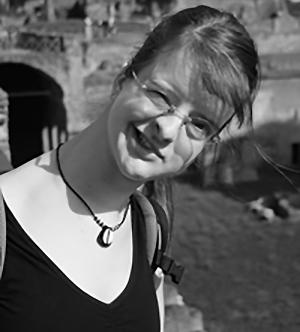 Neither hypnosis, nor the study of syphilis, nor the debate on Friedrich’s III. death of throat cancer – Arthur Schnitzler has followed the medical discourse of his time and participated in its shaping. His Medizinische Schriften documents this participation in a multitude of different reviews, reports, and the only independent study Über funktionelle Aphonie und deren Behandlung durch Hypnose und Suggestion. In this text materia Schnitzler’s comments on his contemporaries’ medical works and the Viennese School present a well-grounded analysis of the situation of the medical profession during his time. These texts demonstrate different kinds of knowledge at the same time: Knowledge about the treatment of hysteria, the aetiology of syphilis, the arguments of hereditary theories and other issues. The extensive opus of Schnitzler’s literary texts stands next to this medical discourse, coeval varies and expounds its problems and therefore transforms parts of this medical knowledge.
Neither hypnosis, nor the study of syphilis, nor the debate on Friedrich’s III. death of throat cancer – Arthur Schnitzler has followed the medical discourse of his time and participated in its shaping. His Medizinische Schriften documents this participation in a multitude of different reviews, reports, and the only independent study Über funktionelle Aphonie und deren Behandlung durch Hypnose und Suggestion. In this text materia Schnitzler’s comments on his contemporaries’ medical works and the Viennese School present a well-grounded analysis of the situation of the medical profession during his time. These texts demonstrate different kinds of knowledge at the same time: Knowledge about the treatment of hysteria, the aetiology of syphilis, the arguments of hereditary theories and other issues. The extensive opus of Schnitzler’s literary texts stands next to this medical discourse, coeval varies and expounds its problems and therefore transforms parts of this medical knowledge.
A thorough investigation of Schnitzler’s medical texts, which already exist for Alfred Döblin, Gottfried Benn or Robert Musil, is a desideratum in Schnitzler’s case and this is where the project starts: What are the strategies for the critical reviews the medical scientist Schnitzler uses in his medical texts and how do they relate to the ones used in his literature? Is there a modification of knowledge in the new context and how does it work?
The doctoral thesis pursues these and more questions in a historical-epistemological focus and thereby gradually illuminates Schnitzler’s literary texts in another way, too. This is shown, for example, by the inner monologues Leutnant Gustl and Fräulein Else as transgressions of what is visible for the diagnostician through the radical internal perspective of these persons; Felix’ supervision by the readers of the novel Sterben is significantly more accurate than the observations of this case by a doctor can ever be; or that the readers are the witnesses to the primitiveness of bacteriological infections in Reigen or that Robert’s Flucht in die Finsternis is not as easy to diagnose as paranoia as the doctor had intended. It is easy to see that the description of the sovereign responsibility of observations in the literary works does not longer only belong to medical experts, the patients and uninvolved readers can do it as well. But nevertheless it is clear that a medical authority behind the text finally decides: The author Schnitzler was a medical scientist throughout his lifetime. It is interesting to see how the medical and the literary texts deal with this tension, because the epistemological strategies of the texts to present and continue medical knowledge among other conditions are similar.
These strategies are analyzed and examined for variations in the doctoral thesis. For this purpose hypnotic experiments, experimental arrangements, observations of infectious and mental diseases as well as Schnitzler’s case histories on the basis of his medical texts will be taken into account. All these elements are to be found in his literary works and so it is necessary to look for the different transformations of knowledge within them.
Tags: Anthropology, Transforming Knowledge and Epistemic Cultures

